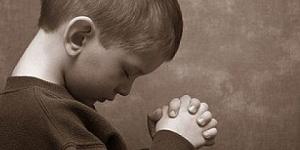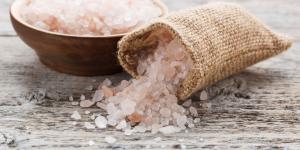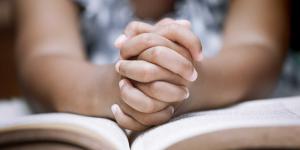STOP CORONA VIRUS - WASH YOUR HANDS REPEATEDLY AND CORRECTLY

A PLASTIC SURGEON'S RANDOM BRAIN WAVES
Wednesday, 4 March 2020
STOP CORONA VIRUS - WASH YOUR HANDS REPEATEDLY AND CORRECTLY
Corona virus has infected over 90,000 individuals in over 70 countries and caused over 3,100 deaths. It has arrived in India and it is our time to protect our countrymen. Besides evacuating them from China and other high risk countries and checking for the disease in the new arrivals in airports and seaports and sending all suspects to a 2 week quarantine there is a lot we need to do now. We’re still not testing people coming from busy and popular transit hubs like Dubai, Doha, Abu Dhabi, Bahrain and Riyadh and people can catch disease from these hubs while in transit as people from high risk countries too travel through these hubs. The two most vital currencies that we now require are correct information and sincere efforts. And the government alone will not be able to do this.
China did a lot of smart things to contain the disease but only after the unsmart blunder of attempting to keep the outbreak under wraps. The disease could have been better contained and many more lives could have been saved otherwise. We need effective communication between the government and the citizens in order to build trust and avoid rumours and panic. Those exposed to the virus should follow the rules of home quarantine responsibly and not throw birthday parties or attend wedding receptions.
What can we, as responsible citizens do? The first is protecting us and our family. Acquiring knowledge of how to do so and then sharing with all who come in our contact - physically and electronically is vital. So a few important points of advice are
- Wash your hands repeatedly and correctly
- Keep your hands away from face, nose and eyes
- No hugging, keep a distance of 1 meter from others
- No handshakes and kisses, only Namashkar
- While everyone need not wear a mask, those who are coughing must.
- Cough and sneeze in your elbow and not in your hands.
- Dispose your tissues and napkins responsibly
- Avoid touching door knobs, banister, taps, handles in buses, trains and metros
- Tell all this to your family, friends, colleagues, students, coworkers, domestic help, driver, washerwoman, cook.
Of all these points the most important is the first one, hand washing and I will share with you a World Health Organization directive about this. The WHO believes that proper hand-washing is one of the best ways of preventing a disease that spreads through the air. In fact, by washing your hands correctly and frequently, you’re able to significantly cut down the risk of spreading both respiratory infections and gastrointestinal diseases.
When to wash hands?
The WHO recommends washing your hands with soap and running water as frequently as you can, and especially after you come in contact with patients suffering from infectious diseases, using public transportation and spending long periods of time in public spaces, as well as after using the bathroom. Other times when it is necessary to wash your hands are:
- Before and after cooking, especially when handling raw food
- After changing baby diapers
- Before eating
- After working in the garden or handling trash
- After playing with animals, touching animal feed or animal waste
- After using a handkerchief
- Before and after caring for someone at home who is sick with vomiting or diarrhea
- Before and after treating a cut or wound
- After using the toilet
Soap and water is best
It is important to wash your hands with running water and soap and minimize the times when you're using hand sanitizer, as the latter cannot clean the hands well enough and protect you from infectious disease, and it has a few other drawbacks, too. However, if you don't have access to running water, hand sanitizer is a good temporary way to clean your hands, at least partially. Antibacterial soap doesn't offer any additional benefits compared to regular soap.
How long do you need to wash each time?
Washing your hands properly takes about as long as singing the complete song "Happy Birthday to you" twice.
Step by step guide to proper hand washing
Follow these five steps every time.
- Wet your hands with clean, running water (warm or cold), turn off the tap, and apply soap.
- Lather your hands by rubbing them together with the soap. Lather the backs of your hands, between your fingers, and under your nails.
- Scrub your hands for at least 20 seconds. Need a timer? Hum the “Happy Birthday” song from beginning to end twice.
- Rinse your hands well under clean, running water.
- Dry your hands using a clean towel or air dry them.
The following diagram is provided by WHO as a guideline for proper hand washing
The role of hand sanitizer
Washing hands with soap and water is the best way to get rid of germs in most situations. If soap and water are not readily available, you can use an alcohol-based hand sanitizer that contains at least 60% alcohol. You can tell if the sanitizer contains at least 60% alcohol by looking at the product label. Sanitizers can quickly reduce the number of germs on hands in many situations. However,
- Sanitizers do not get rid of all types of germs.
- Hand sanitizers may not be as effective when hands are visibly dirty or greasy.
- Hand sanitizers might not remove harmful chemicals from hands like pesticides and heavy metals.
How to use hand sanitizer
- Apply the gel product to the palm of one hand (read the label to learn the correct amount).
- Rub your hands together.
- Rub the gel over all the surfaces of your hands and fingers until your hands are dry. This should take around 20 seconds.
Caution! Swallowing alcohol-based hand sanitizers can cause alcohol poisoning if more than a couple of mouthfuls are swallowed. Keep it out of reach of young children and supervise their use.
We know that the virus causes infection through respiratory droplets from an infected person. So, quarantining a sick person is not enough if precautions are not taken to decontaminate surfaces that the patient came in contact with, and on which coronaviruses can survive for several days. The best and the easiest way to protect the virus from spreading is to be aware of its mode of spread, avoid bodily contacts, avoid large gatherings and busy closed places and wash our hands as frequently as possible
Dr. Surajit Bhattacharya at 21:20










